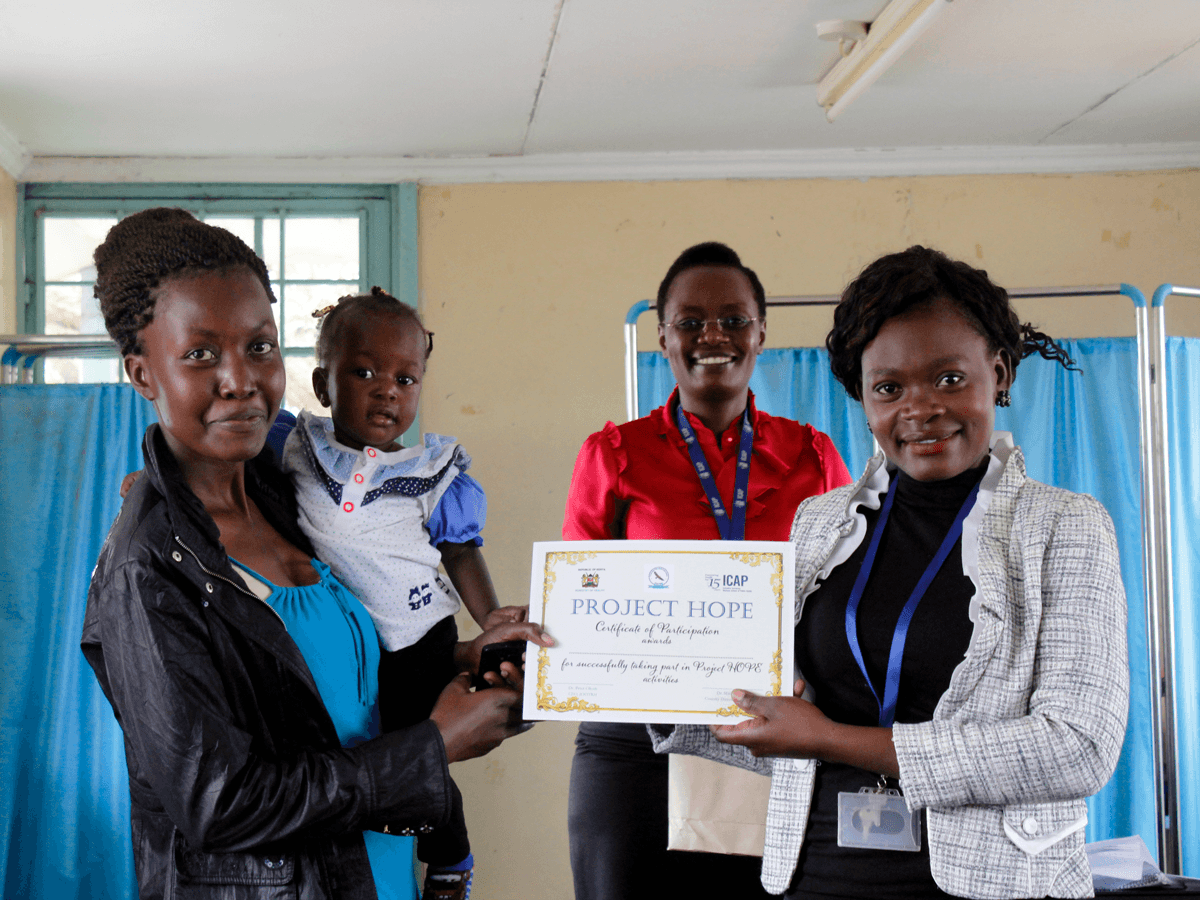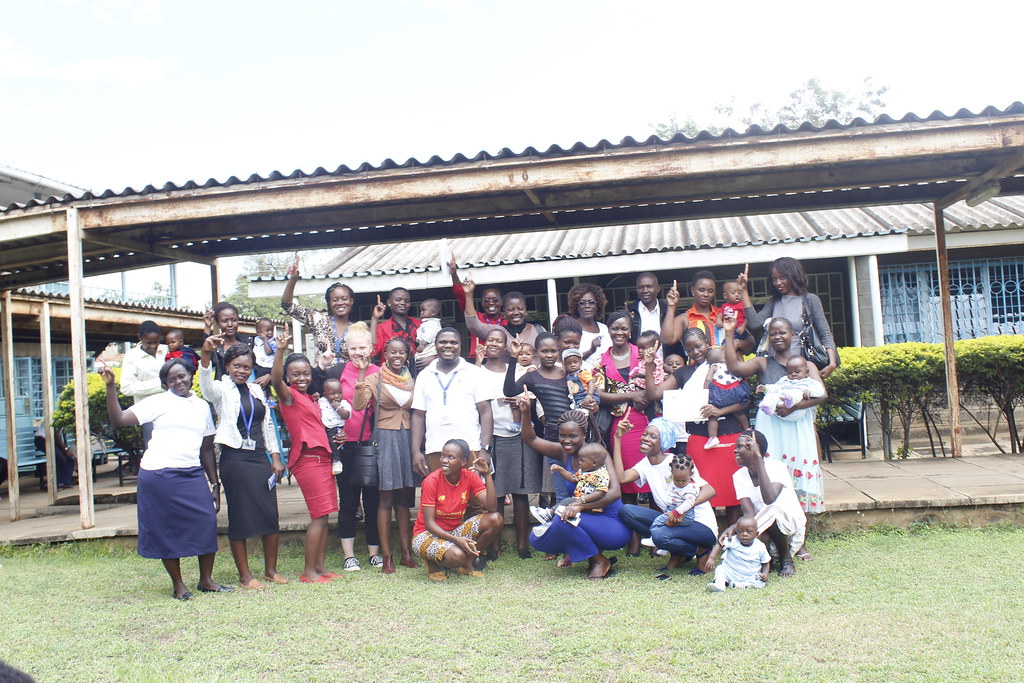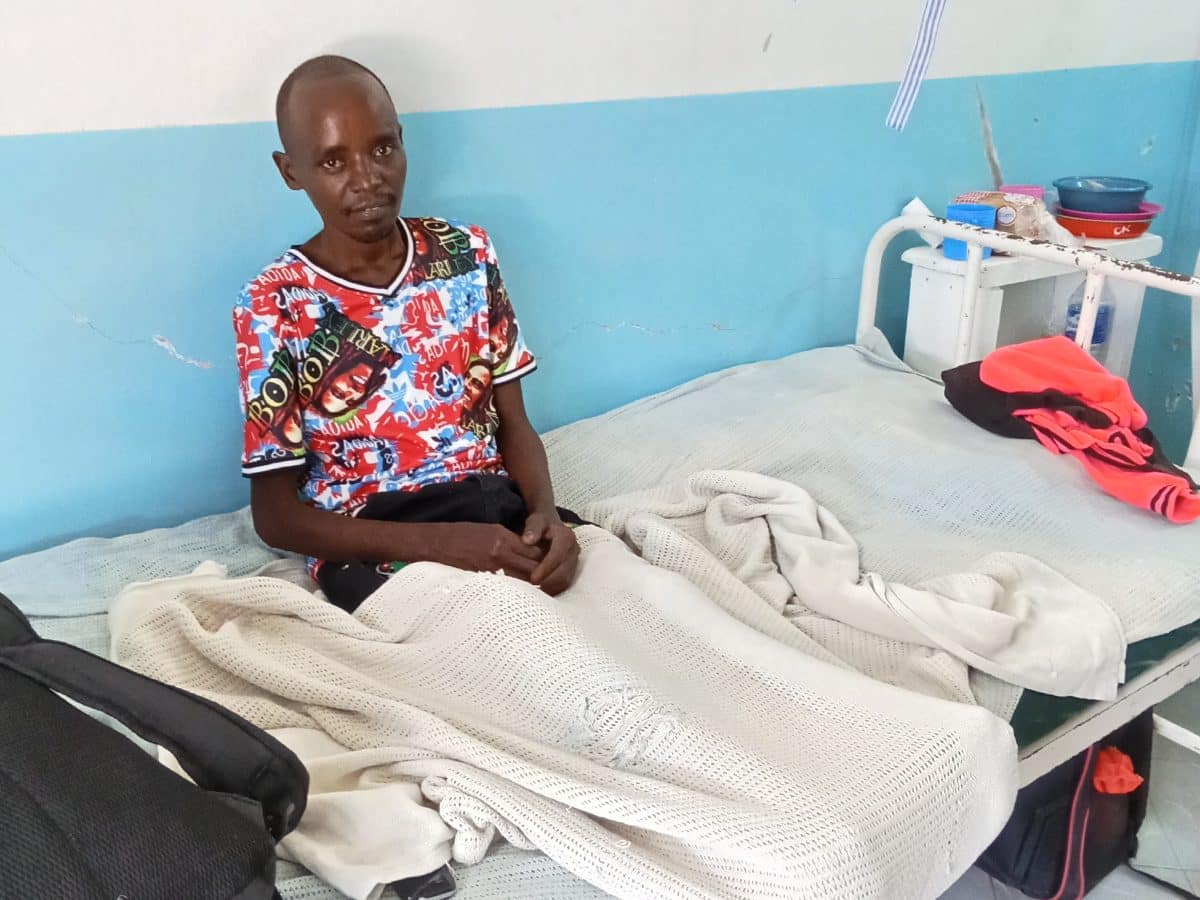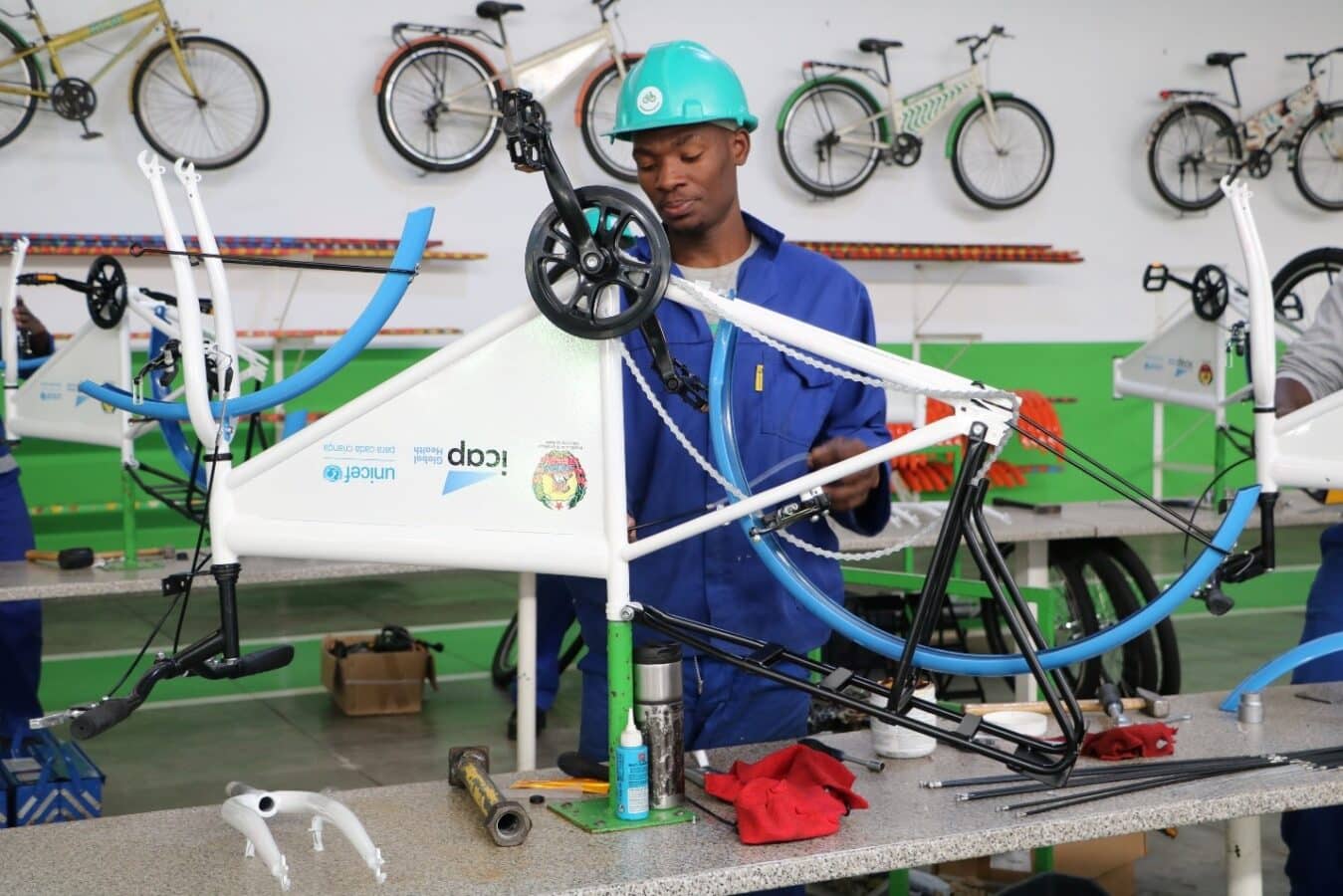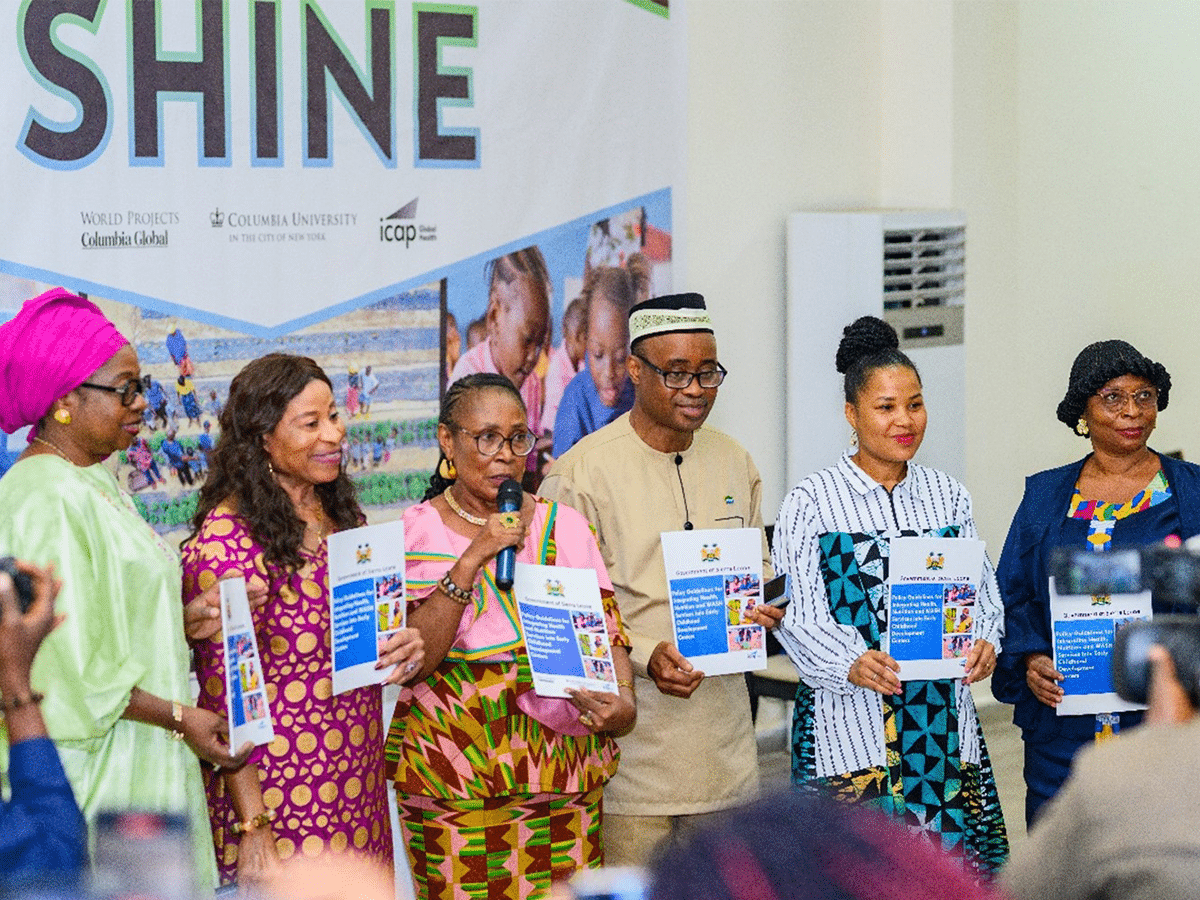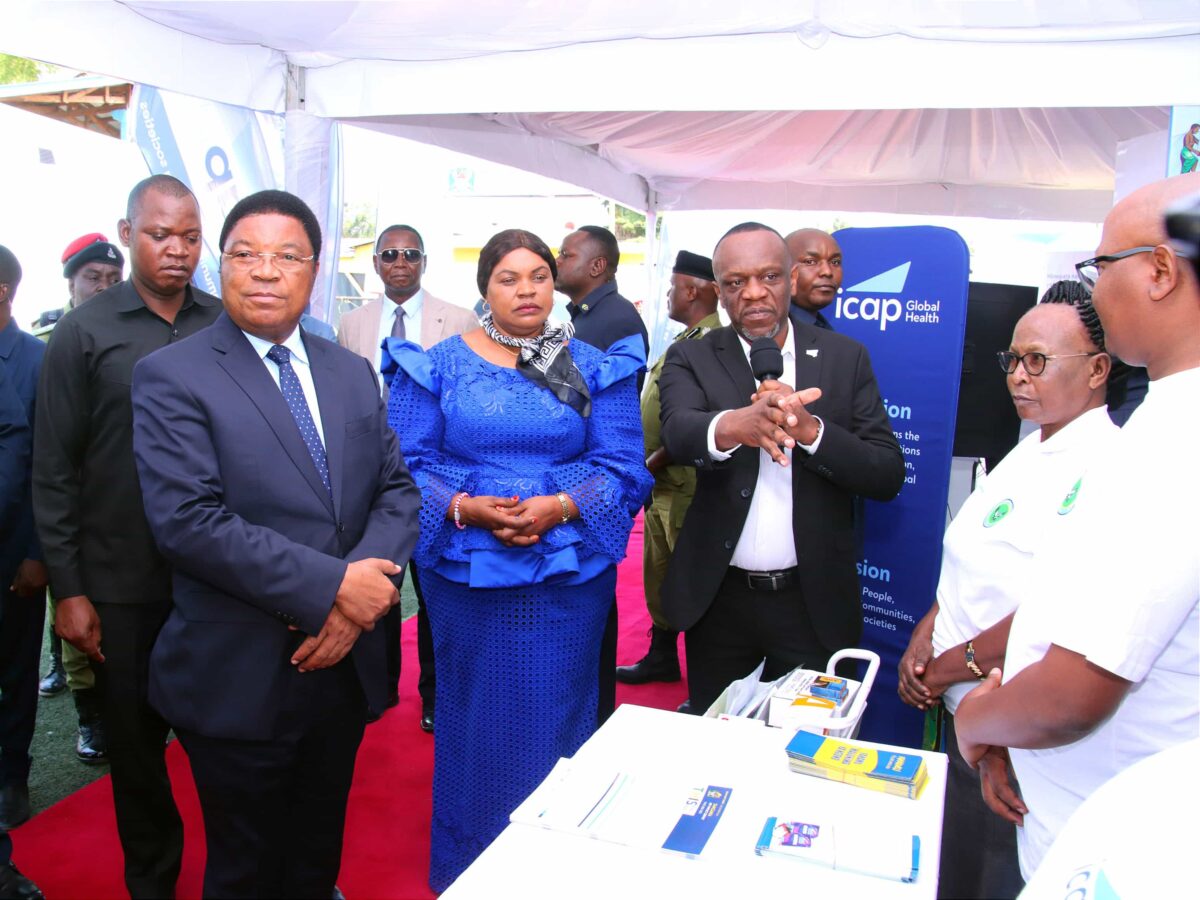At the Jaramogi Oginga Odinga Teaching and Referral Hospital (JOOTRH) in Kisumu, a port city on Lake Victoria and the hub of western Kenya, a group of 16 young mothers gathered on August 30, 2018, to mark a momentous occasion. Although they themselves are all HIV-positive, their adherence to antiretroviral therapy (ART) through the ICAP-supported Adolescent HOPE Project had prevented HIV transmission to their infants through gestation and the first six months of life, and they were preparing to graduate to the next stage of the program. As the speeches were about to begin, the room buzzed with the familiar conversation of women who had grown close over months of meeting together for group appointments and mutual support.
“I cannot imagine returning back to individualized care since I have made friends here with whom I share my deepest concerns,” said one participant. “We remind each other that we are together in this journey, and I have not missed any clinic appointments because I look forward to these group sessions.”
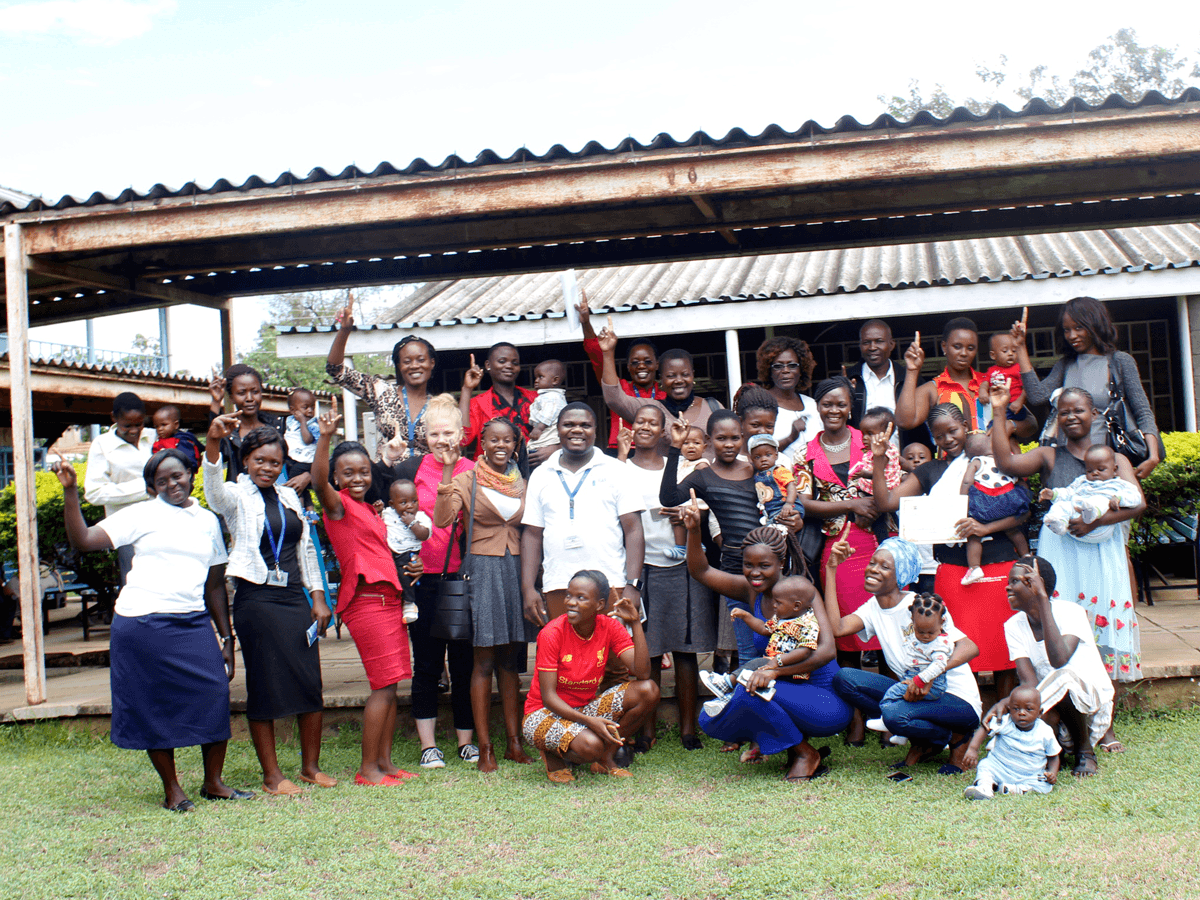
During pregnancy, regular attendance at antenatal and postnatal care is important for the health of women and their infants. For pregnant and new mothers living with HIV, prevention of mother-to-child transmission (PMTCT) of HIV is possible through adherence to ART and sustained viral load suppression. However, adolescent mothers living with HIV experience compound barriers to care, with the result that many do not remain in PMTCT services.
“I was terrified at the beginning of my ANC clinic visit when I received a positive HIV test result, and I could not take my drugs,” said another participant.
New strategies are needed to address the needs of this vulnerable group, which is why ICAP is working with the Kenyan Ministry of Health to pilot an approach called Group Antenatal Care (GANC) and Group Postnatal Care (GPNC) at seven health facilities in the Nyanza region of Kenya under the banner of the Adolescent HOPE Project. Young women receiving the new services feel more engaged in their own health and supported by the facility staff, and benefit from connecting with other adolescents and young pregnant women in their community who are also living with HIV.
“Joining the HOPE Project has improved my confidence, knowledge, and I have a better outlook towards life. Being in a group with girls of the same status is fulfilling.”
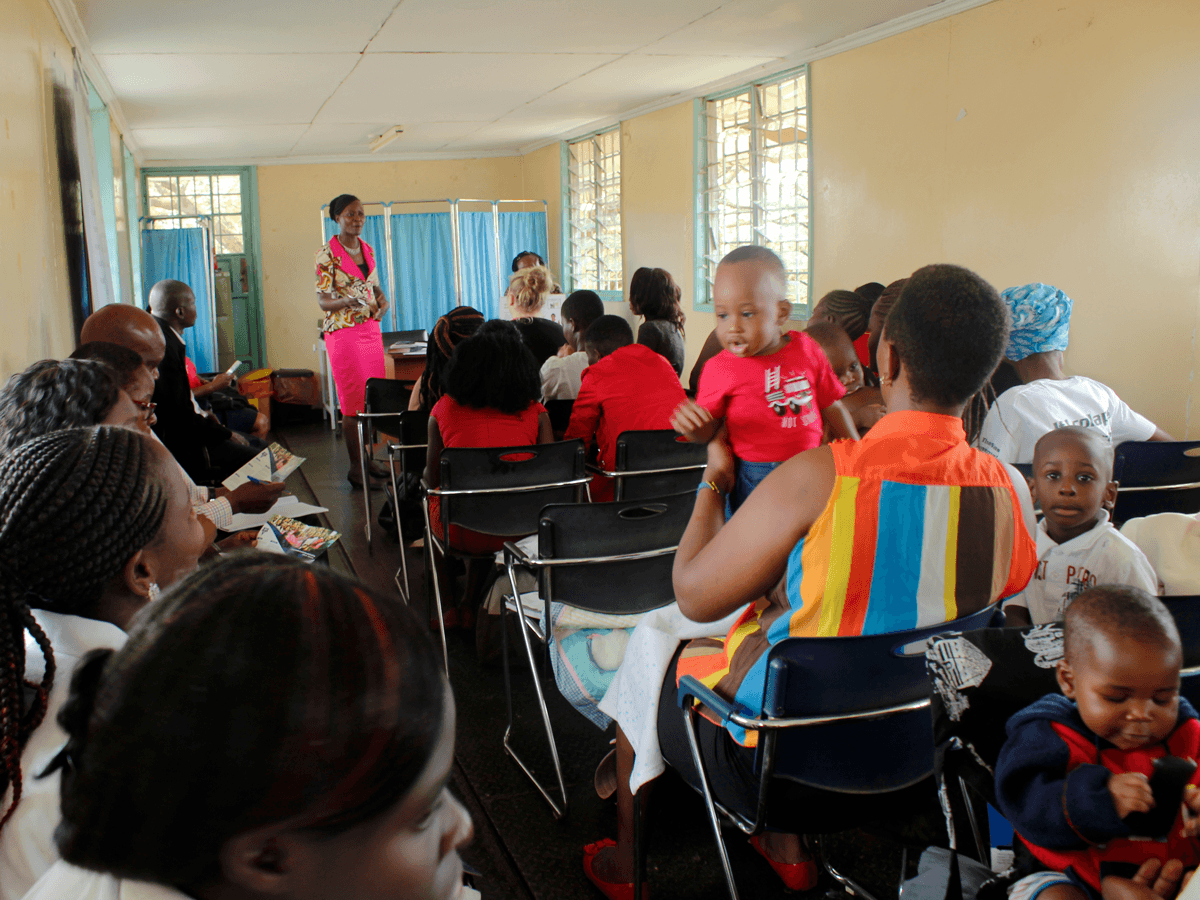
ICAP’s Adolescent HOPE Project is reorganizing care at the participating facilities for pregnant and postnatal adolescent and young women (under 25 years old) living with HIV. Rather than scheduling individual visits, the young women attend their care through monthly group visits, which include all of the recommended medical care per Kenya’s national guidelines and also offer enhanced support services. At each group visit, participants play an active role in their medical care by taking their own weight and blood pressure measurements, and by helping each other to conduct adherence assessments.
“I have enjoyed receiving my care within the HOPE space,” said a participant. “The health care providers talk to us and treat us with respect, and meeting as a group has abolished waiting time, so there’s no time wasted.”
“I was proud to be involved in my health care by being able to measure and interpret my temperature and blood pressure,” another participant said. “I have since purchased my own thermometer and regularly measure my child’s temperature.”
Since December 2017, under the HOPE Project and in collaboration with the Ministry of Health, ICAP has been supporting staff at seven health facilities in Kisumu and Siaya Counties in Kenya to implement GANC and GPNC, through funding from the U.S. Centers for Disease Control and Prevention (CDC) Global Technical Assistance award.
“The HOPE Project has enabled psychosocially challenged and stigmatized young mothers to share their experiences and has resulted in reduction of stigma,” said project nurse Nancy Adhiambo.
“Some deep, underlying issues have been unearthed regarding various barriers the clients pass through, both clinically and socially,” commented social worker John Matinde. “Clients who had earlier felt alone, ignored, rejected, and with low self-esteem found a ‘family’ where interactions and sharing of experiences helped them feel more stable.”
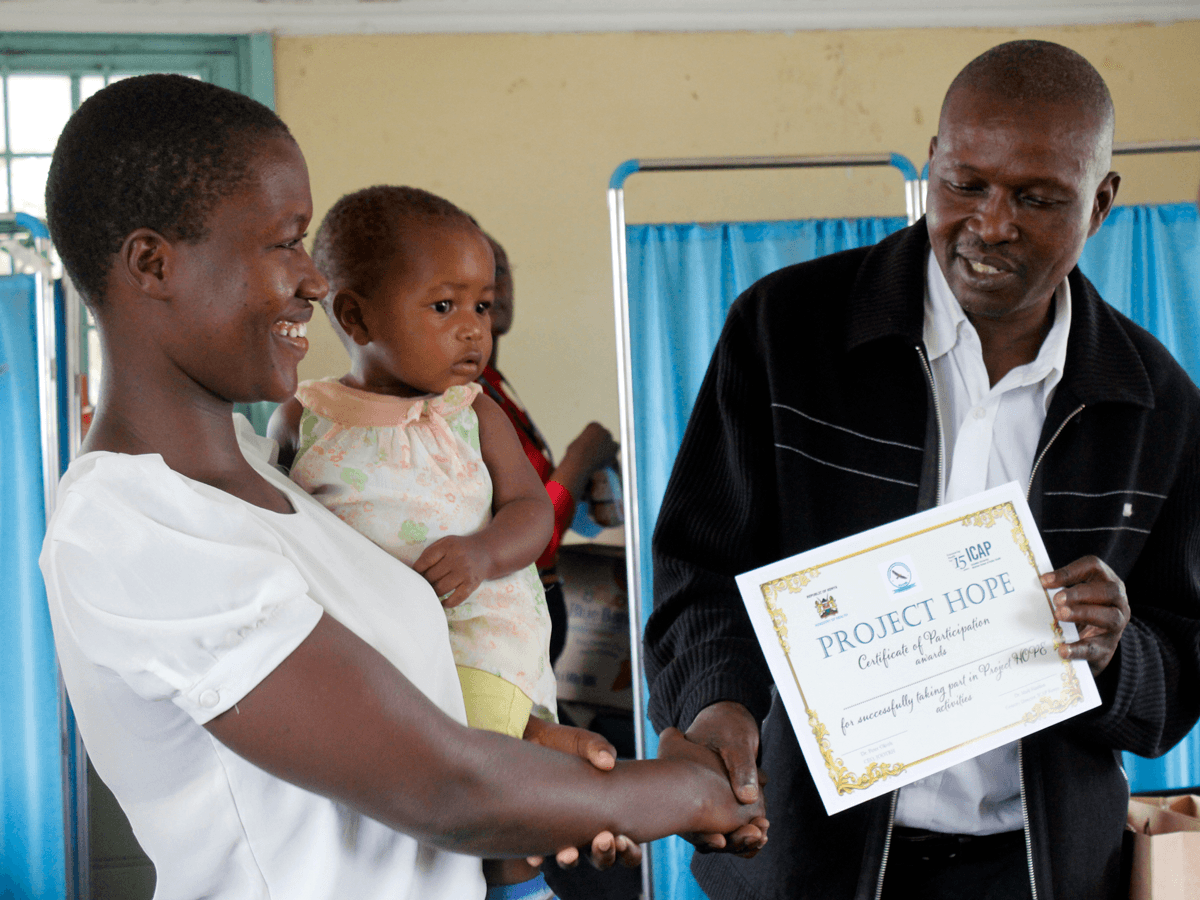
Based on studies showing the beneficial effects of the group care model on non HIV-related pregnancy outcomes, including low birth weight, ICAP anticipates that the HOPE model will help improve retention of adolescent and young women living with HIV in antenatal and postnatal care in order to improve their treatment outcomes and reduce mother-to-child transmission. An end-of-project evaluation is planned to show the degree of success and highlight major learnings.
“I am happy to host the girls within this group space,” said Matron Janet Aoko Ooko, a nurse at the Patient Support Center at JOOTRH, which houses the adult HIV care and treatment clinics that welcome all PMTCT patients after 24 months post-partum. “I have seen them grow, get more confident in their care, understand and interpret their own biometrics, and even hold each other accountable for adhering to their treatment and staying healthy.”
In the Adolescent HOPE Project framework, the young women transition back to routine standard of care postnatal services at each facility when their infants reach six months of age. ICAP is working closely with CDC, MOH, health facilities and the implementing partners supporting participating facilities to ensure that the adolescent and young mothers remain supported.
At the JOOTRH graduation, a spirit of cohesion and celebration filled the hall where the nurses, clinical officers, social workers, and mentors gathered with project staff, ICAP representation, and leaders from three community-based organizations who shared information about support services available locally. In their respective opening and closing remarks, the JOOTRH nursing officer-in-charge and maternal and child health officer-in-charge offered reflections on working with the young women and invited the participants to share their own experiences of the program. Participants received certificates of completion as well as HOPE Project gift packs which included a cloth wrapper for mom and baby.
“It has been a fulfilling journey working with young girls from my community, witnessing their growth both socially and psychologically,” said ICAP’s project coordinator Judith Odondi. “Their level of HIV education and child care has greatly improved. I am happy to be part of this awesome innovation.”
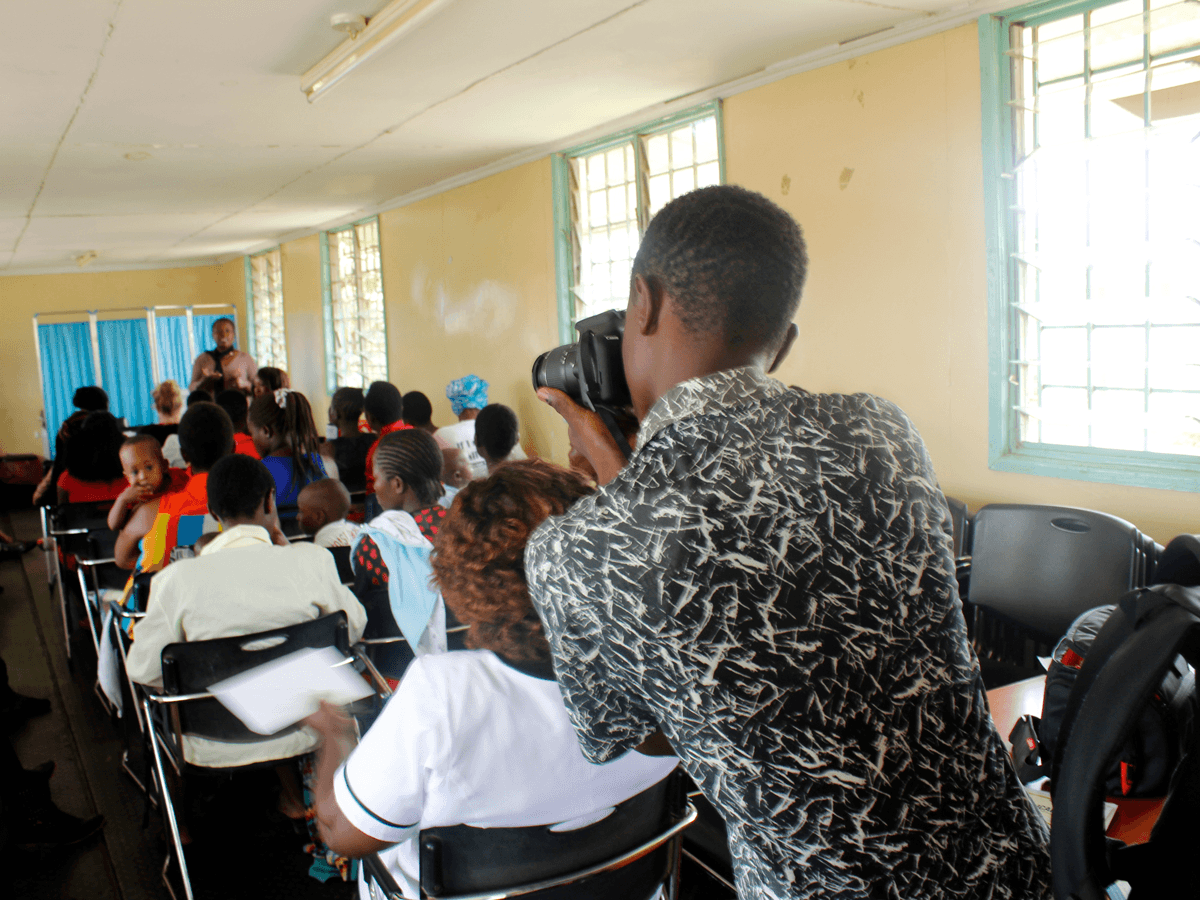
Additionally, the ceremony was documented by two adolescents living with HIV who had recently completed a five-day photography workshop in Kisumu, held jointly by ICAP, JOOTRH, New York-based photographer Amy Bedik, and Columbia University’s School of Journalism.
“ICAP is dedicated to improving health outcomes and enhancing the lives of adolescents and youth who are living with HIV, and the Adolescent HOPE Project is one of several programs ICAP has developed in partnership with Kenya’s National AIDS Control Program to address the unique needs of this special population—another being the youth photography workshop,” said Chloe Teasdale, PhD, deputy director for research at ICAP. “It is wonderful to see the bonds that have developed between participants and how those are contributing to improving their health and the health of their children.”


